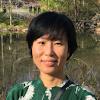Craft, Technology, and Material Culture in Early Modern Asia
Consisting of scholars of diverse disciplinary backgrounds from across North America and Asia, this group explores systems of artisanal knowledge and their social, cultural, and political significance in Asia from 1400 to 1800. An approach toward early modern science and technology through the lens of craft and material objects can lend itself to the study of diverse historical topics in both macro and micro-scales. Our group intends to build a flexible methodology of craft and materiality that can be used in the investigation of a wide range of research topics including knowledge production, artisanal community, statecraft, infrastructure, networks, commerce, environment, and foodways. We focus on the modality of craft – such as embodiment, skills, and oral transmission – as well as the material attributes of things as the locus of epistemic tension and technological appropriation through the study of texts, objects, and bodily practices. In addition, promoting perspectives of transnational, comparative, and connected histories, the working group will foster discussions about early modern empires, oceanic and silkroad connections, capitalism, migration, and border and frontier studies, which, to varying degrees, integrate (Eur-)Asia beyond the boundaries of the political states.
Please set your timezone at https://www.chstm.org/user
Respectful Behavior Policy
Participants at Consortium activities will treat each other with respect and consideration to create a collegial, inclusive, and professional environment that is free from any form of discrimination, harassment, or retaliation.
Participants will avoid any inappropriate actions or statements based on individual characteristics such as age, race, religion, ethnicity, sexual orientation, gender identity, gender expression, marital status, nationality, political affiliation, ability status, educational background, or any other characteristic protected by law. Disruptive or harassing behavior of any kind will not be tolerated. Harassment includes but is not limited to inappropriate or intimidating behavior and language, unwelcome jokes or comments, unwanted touching or attention, offensive images, photography without permission, and stalking.
Participants may send reports or concerns about violations of this policy to conduct@chstm.org.
Upcoming Meetings
-
Friday, December 6, 2024 11:00 am to 12:30 pm EST
Genevieve Alva Clutario, Beauty Regimes: A History of Power and Modern Empire in the Philippines, 1898–1941, Introduction and Chapter 4.
-
Friday, January 3, 2025 11:00 am to 12:30 pm EST
TBA
-
Friday, March 7, 2025 11:00 am to 12:30 pm EST
TBA
-
Friday, April 4, 2025 11:00 am to 12:30 pm EDT
TBA
-
Friday, May 2, 2025 11:00 am to 12:30 pm EDT
TBA
-
Friday, June 6, 2025 11:00 am to 12:30 pm EDT
TBA
Past Meetings
-
November 8, 2024
*NOTE SPECIAL DATE*
Amanda Lanzillo, Pious Labour: Islam, Artisanship, and Technology in Colonial India (Berkeley: UC Press.), introduction & chapter 5.
-
October 4, 2024
Nanny Kim, Mountain Rivers, Mountain Roads: Transport in Southwest China, 1700‐1850 (BRILL, 2020), Ch. 11.
Jianxiong Ma, “The Mule Caravans as Cross-Border Networks: Local Bands and Their Stretch on the Frontier between Yunnan and Burma,” in Myanmar’s Mountain and Maritime Borderscapes, 237–60.
-
September 6, 2024
Sucheta Mazumdar, Sugar and society in China : peasants, technology, and the world market (Harvard University Asia Center, 1998), Introduction and Chs. 5-6.
-
May 10, 2024
C. A. Bayly, “The origins of swadeshi (home industry): cloth and Indian society, 1700–1930,” In Arjun Appadurai (Ed.), The Social Life of Things: Commodities in Cultural Perspective (pp. 285-321). Cambridge University Press.
Antonia Finnane, How to Make a Mao Suit: Clothing the People of Communist China, 1949–1976 (Cambridge University Press, 2023). Introduction and chapter 1.
Some notes about the readings (from discussion leader Dr. Rachel Silberstein):
Chris Bayly's The Origins of Swadeshi looks at how the meanings of homespun cloth developed through the pre-colonial and colonial periods, partly in response to the import of European machine-made cloth. Chapter 1 from Antonia Finnane's newly published How to Make a Mao Suit charts the role of the Red Group tailors, the first Chinese tailors to master Western tailoring, in creating the Zhongshan suit. Introduction also included for further context (pp.20-24 provide a useful book outline).
-
April 5, 2024
Morgan Pitelka, Reading Medieval Ruins: Urban Life and Destruction in Sixteenth-Century Japan (Cambridge University Press, 2022), Introduction & chapter 2.
-
March 1, 2024
Hu, Di. The Fabric of Resistance: Textile Workshops and the Rise of Rebellious Landscapes in Colonial Peru. The University of Alabama Press, 2022, Chs. 3-4.
-
February 2, 2024
Kai Jun Chen, Porcelain for the Emperor: Manufacture and Technology in Qing China (Seattle: University of Washington Press, 2022), Chapters 2 and 3.
-
December 1, 2023
We are going to discuss the changing concept of resources in the early modern and modern period.
“Focus: Resources in the Early Modern World,” Isis 114, no. 3 (September 1, 2023): 599–645, https://doi.org/10.1086/726186.
Peter B. Lavelle, The Profits of Nature: Colonial Development and the Quest for Resources in Nineteenth-Century China (New York: Columbia University Press, 2020), Chapter 2.
-
November 3, 2023
The discussion will be moderated by Anna Grasskamp.
- Robin Kelsey, "Ecology, Sustainability, and Historical Interpretation," American Art 28, no. 3 (Fall 2014): 8-13.
- Peter J. Golas, “Late Ming and The Exploitation of the Works of Nature,” in Picturing Technology in China : From Earliest Times to the Nineteenth Century (Hong Kong: HKU Press, 2015), pp. 97-124.
-
October 6, 2023
Sarah Teasley, "Sticky Solutions: The Persistence of Animal Glues in Laboratories and Workshops in Twentieth-Century Japan," Historical Studies in the Natural Sciences 53, no. 3 (June 2023): 278-307.
Tom H. Fisher, "What We Touch, Touches Us: Materials, Affects, and Affordances," Design Issues (2004) 20 (4): 20–31.
Group Conveners
-

Kyoungjin Bae
Kyoungjin Bae is James P. Storer assistant professor of Asian history at Kenyon College. She is an historian of everyday technology and material culture in early modern China. She received a Ph.D. in Global and International History from Columbia University and completed two postdoctoral fellowships at the Lieberthal-Rogel Center for Chinese Studies at the University of Michigan and the Institute for Humanities and Social Sciences at the University of Hong Kong. Her book manuscript examines Cantonese cabinet making and carpenters’ knowledge during the eighteenth century.
-

Rachel Silberstein
Dr Rachel Silberstein is an independent scholar affiliated with the University of Washington specializing in Chinese dress and textile history. She earned a DPhil in Oriental Studies from the University of Oxford in 2015. Her monograph, A Fashionable Century: Textile Artistry and Commerce in the Late Qing (University of Washington Press, 2020) – a study of fashion and textile handicrafts in early modern China – won the Costume Society of America’s Millia Davenport Publication Award 2021 and an honorable mention from the 2023 Bei Shan Tang Monograph Prize. Rachel has published widely on Qing fashion in the journals West 86th, Fashion Theory, Costume, and Late Imperial China. Other publications include “Fashion in Ming and Qing China,” in The Cambridge Global History of Fashion (University of Cambridge Press, 2023), and “Threads of Commerce and Consumption: the Qing Trade in Cotton, Silk, and Wool Textiles,” in The Oxford Handbook of the China Trade (Oxford University Press, 2025, forthcoming). Previously Visiting Assistant Professor at the University of Puget Sound and Rhode Island School of Design, her research has been supported by the Pasold Research Fund, the Luce Foundation/ACLS, and the Institute of Advanced Studies.
www.rachelsilbersteindphil.com
-

Yijun Wang
Yijun Wang is Assistant Professor of History at New York University as well as a 2020-2021 ACLS-Luce China Early Career fellow. She is a historian of material culture, history of technology and gender in early modern China. Yijun is interested in the connections between knowledge, technology, power, and capitalism. Her book manuscript examines the transmissions of tin mining technology and changes in statecraft in China from 1700 to the 1850s.
-

Yulian Wu
Yulian Wu is Assistant Professor of the History Department at Michigan State University. She specializes in material culture, gender relations, and Manchu studies in early modern China. She published her first book, Luxurious Networks: Salt Merchants, Status, and Statecraft in Eighteenth-Century China in 2017 (Stanford University Press). Her current project titled “Crafting Jade: The Construction of Objects and Empire in Eighteenth-Century China,” explores jade production and consumption in the High Qing period.